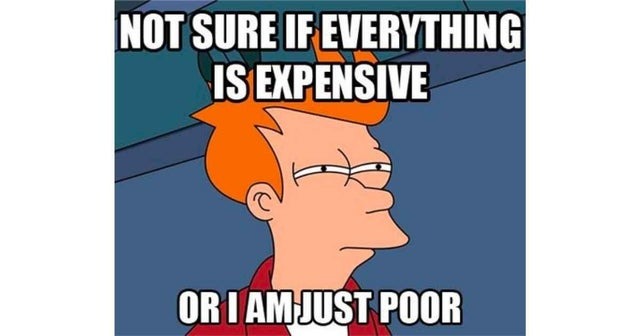Is Protein Powder Really That Expensive? Cost Breakdown

Ever wondered if you’re overpaying for that tub of protein powder sitting in your kitchen?
You’re not alone. Protein powder costs generally range from $1 to $3 per serving, depending on what you’re buying. Some basic whey proteins might only set you back about $0.87 per scoop, while fancy plant-based or premium options can climb toward the $3 mark.
Is that expensive? Well, that depends on your budget, your protein needs, and how picky you are about ingredients.
Let’s break down what you’re actually paying for when you buy protein powder and whether it’s worth it.
What Makes Protein Powder Expensive (or Not)
Protein Source Matters (A Lot)

Different protein sources come with vastly different price tags:
Whey Protein: Usually the cheapest option, around $1 per serving for popular brands. It’s the McDonald’s of protein powder – affordable, available everywhere, and gets the job done.
Plant-Based Proteins: These cost more (often $2+ per serving) because, well, turning peas and rice into a powder that doesn’t taste like dirt is harder than you’d think.
Premium Whey Isolates: The fancy stuff with labels like “grass-fed” and “cold-processed” will cost you about $2 per serving. It’s like the organic section of protein powders.
A study from the Journal of the International Society of Sports Nutrition found that whey protein is generally the most efficient for muscle protein synthesis, which might explain why it remains the most popular despite new alternatives.
You’re Paying for More Than Just Protein

When that price tag makes you wince, remember you’re paying for:
- Protein Content: Higher protein per scoop = higher price (usually)
- Quality Assurance: Third-party testing isn’t free
- Clean Ingredients: Avoiding artificial sweeteners and fillers costs more
- Certifications: “Organic,” “Non-GMO,” and “NSF Certified for Sport” all add to the price
- Flavor Development: Making a chalky protein taste like “Birthday Cake” requires R&D
Price Comparison: What Are You Actually Getting?
| Protein Type | Cost Per Serving | Protein Per Serving | What’s Special? |
|---|---|---|---|
| Basic Whey Concentrate | $0.87-$1.30 | 25g | Affordable, gets the job done |
| Plant Protein | $2.06 | 25g | Vegan-friendly, often easier to digest |
| Premium Grass-Fed Whey | $2.00 | 28g | No fillers, cleaner ingredient list |
| Super Premium Protein | $2.93 | 20g | Typically has added superfoods or vitamins |
The American Council on Exercise recommends looking at price per gram of protein rather than price per serving to truly compare value.
Is Protein Powder Worth the Money?

Why People Pay Premium Prices
- Convenience: A ready-in-seconds protein source when you’re busy
- Muscle Recovery: Research published in the Journal of Applied Physiology shows protein supplements can enhance muscle recovery after exercise
- Quality Assurance: Third-party testing ensures you’re not getting sketchy ingredients or banned substances
- Dietary Restrictions: If you’re vegan, lactose-intolerant, or have allergies, specialty powders solve problems
- Better Taste: Let’s be honest – premium brands usually taste better and mix smoother
How to Save Money on Protein Powder
Don’t want to drop a small fortune on protein? Try these tips:
- Compare price per gram of protein, not just the sticker price
- Buy in bulk when you find a good deal (but check expiration dates)
- Look for sales and subscribe-and-save options (many brands offer 10-15% off)
- Choose whey concentrate over isolate if you don’t need the ultra-filtered version
- Skip the fancy add-ins (creatine, BCAAs, etc.) and buy them separately if needed
According to Precision Nutrition, most people can meet their protein needs with whole foods, making protein powder a supplement, not a necessity.
The Bottom Line: Expensive or Worth It?

Protein powder’s cost is all relative. Compared to getting protein from chicken breast or eggs, it’s expensive. But for:
- People struggling to hit their protein goals
- Busy folks who need quick nutrition
- Athletes requiring precise recovery nutrition
- Those with dietary restrictions
…the convenience and benefits might be totally worth the price.
A meta-analysis in the British Journal of Sports Medicine concluded that protein supplementation can significantly enhance muscle strength and size when combined with resistance training.
So next time you’re eyeing that $50 tub of protein, remember: you’re not just buying powder – you’re investing in convenience, quality, and nutritional goals. Whether that’s worth it depends entirely on you and your priorities.
Just don’t fall for marketing hype that tries to convince you that the $70 tub is magically going to give you biceps like The Rock. No protein powder is that powerful.

